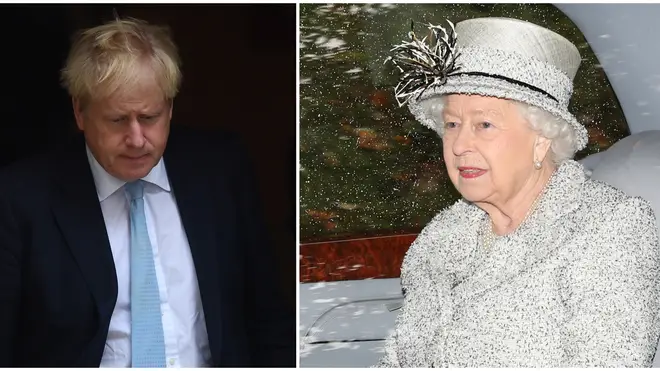
Clive Bull 1am - 4am
8 October 2019, 15:47 | Updated: 8 October 2019, 15:53
Dr Sean Lang, a Senior Lecturer in History at Anglia Ruskin University, warned Shelagh Fogarty that we could be approaching a constitutional crisis.
Shelagh Fogarty asked whether we were approaching "constitutional crisis territory".
Dr Sean Lang responded: "I think it does because of the Benn Act. If it weren't for that then he could take any line that he wanted but it is actually enshrined in law that he is not allowed to take us out without a deal and, as you say, we're getting contradictory messages from him as to what he intends.
"If he gets into a position where he is in breach of the law, then we get into what is called a constitutional crisis. What that means, of course, it brings in all the sanctions which are normally never used. And, of course, this goes up to and including the Crown which has already been involved in this thanks to the prorogation issue the other week.
In the end, if you have a Prime Minister who simply refuses to obey the law and we don't know if he has some cunning plan to get around the law. But if it is judged that he is actually defying the law, then we are in an unprecedented situation and you then start looking for unprecedented ways to get out of it."

Shelagh then asked: "What's on your mind when it comes to unprecedented ways?"
Lang responded: "We need to keep calm here and not get overexcited but nevertheless the whole idea of the palace is to keep the monarch out of politics but in the end the monarchy does have the right to dismiss the prime minister. It has happened in the past. In this country, it happened a long time ago but, nevertheless, it did happen twice. Both times the Monarch got away with it."
He exlaimed: "We're looking at George III and William IV, the last time was 1834, but when it was done, yes that Government was dismissed, the opposition, the alternative prime minister came in..."
That was, in the first case, because the government had lost a vote in the House of Lords and the defeat was engineered. The second case was the sacking of a government because of a reform crisis a few years earlier. A more recent example, in Australia, in 1975 Gough Whitlam's government was sacked by the Governor General acting on behalf of the Queen.
Lang said: "This is unprecedented. If you have a prime minister who is defying the law there has to be a power over him, otherwise prime ministers can simply ignore the law forever. I suppose the point you have to bear in mind is the reason the monarch will always take the advice of the prime minister is because it is assumed ... two things really.
"One is that the prime minister and everyone else is keeping to the 'good chap way of doing things'. Not exactly observing the rules but observing the way things are done. It sounds very vague but you know when things are not being done.
The other thing, of course, is that you assume that the prime minister speaks with the backing and support of the House of Commons. When you have someone who, if he does defy the law and clearly doesn't have the support of the House of Commons, you create a very different situation. so this is this backstop for the monarch's power, it is there."
The history professor then spoke of the monarch's role and position in the constitution. He said: The monarch's role is that she has the right to advise the prime minister, to warn the prime minister and be consulted by the prime minister, hence the weekly meetings the prime ministers have. She is, of course, a highly experienced politician, she's been in politics a lot longer than anyone in parliament and she's dealt with some pretty big crises in her time."
He added: 'She's already been dragged into this whether she likes it or not. She's been put into a very, very difficult situation."